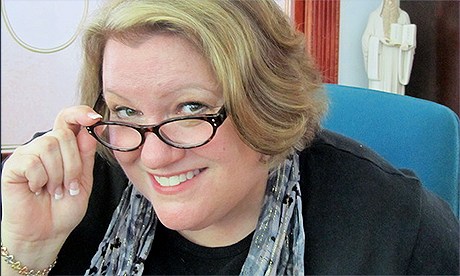Last night I discovered that the Archdiocese of Washington, DC appears to have commissioned some PR help and created a website meant to support and/or protect the prelate’s reputation.
You can find it at The Wuerl Record. *
This is the sort of action we usually see being taken by a Chairman of the Board, or a CEO, or a politician, and that’s very telling; it exposes a mindset that is geared toward management and administration, with a less-than-optimal pastoral sensibility on display.
It’s all too much of the world.
I’m being kind, okay?
Here’s the truth: Too many of our bishops are men who have not heard someone talk straight to them in decades.
They’re beyond insulated — they never hear anyone say “no” to them, or give them a hard time.
You need a little friction in life to keep you grounded — without it you just become slick, and start to spin.
All day yesterday, as Catholics read the devastating and sickening Grand Jury report out of Pennsylvania, Catholics on social media repeatedly asked: “What can we do? How do we begin?
What are the first steps to restoring trust and rebuilding our Church?”
Good questions which we need to answer because it actually is our Church — the People of God’s.
Management or ministry?
One noteworthy line in The Wuerl Record may answer “How to begin?”
While I served as Bishop of the Diocese of Pittsburgh, and as our understanding of child sexual abuse increased, the Diocese worked to strengthen our response and repeatedly amended the Diocese’s safeguards and policies. The Diocese worked to meet or exceed the requirements of the United States Conference of Catholic Bishops and the reporting requirements of Pennsylvania law.
Emphasis mine, because it’s important; this is the language of the boardroom, where Key Performance Indicators (KPI) are cited to help assess failures or successes, and to produce subsequent values.
Within context, they are all about the measure of management, not ministry.
And that’s where The Wuerl Record has unwittingly shown where we might look to “begin to effect change” — and it is a change that isn’t even contingent upon a Papal action; the bishops can voluntarily take this up tomorrow if they are sincere about finding ways to restore trust within the American church.
Priests or executives?
It’s quite simple: Currently, most of our bishops are more executives than priests, so let’s get them out of the boardrooms, entirely.
In one part of the grievous Grand Jury Report, Cardinal Wuerl is reported to have have presided over the funeral of an abusive priest — one member of a horrific and perverse group who gave gold crosses to altar boys meant to signal that the boys “were optimal targets for further victimization”.
At the Mass Wuerl “stated, among other things, that ‘a priest is a priest. Once he is ordained, he is a priest forever.’”
Well, if so, then let our bishops and cardinals act like priests, not elite executives.
Currently, most of our bishops are more executives than priests, so let’s get them out of the boardrooms, entirely… Let our bishops and cardinals act like priests, not elite executives.
It’s very clear that too many bishops and cardinals have shown themselves to be untrustworthy overseers; they need to learn how to be priests again.
And there is no better way to do that than to toss them out of the cushy offices, greatly reduce the number of personal assistants, end the entourage, discourage the gold cuff links and the bespoke shirts and the limos.
Send them forth with a pair of good shoes and a working phone, into the mission territory of their parishes.
Let each bishop acquire a diocesan administrative team of trustworthy, capable professional lay people who have no disordered attachment to ideas of protectionism or clericalism.
That removes the prelate from management concerns and permits him to become reacquainted with the real and practical ministry for which he was ordained and should be at the very core of his priesthood.
- Make the course of their day all about ministry and service, bishops reconnecting to their priesthood not through careerist networks but by spending their time actually working and praying with the people of their diocese they’re supposed to be serving.
- Get them into the outreach offices, helping families with strained economies — learning about what their daily lives, joys, and struggles involve.
- Get them into the soup kitchens, serving hungry people, and maybe even sitting with them and hearing their stories, learning their names.
- Let them show up at parish RCIA classes and participate in adult formation; let them bless houses, and meet with the bereavement groups and the local Knights, and the Biker’s Club, and the Venturing crew. Let them take a seat at a choir practice, once in a while.
- Let them become pastors who talk to their sheep not at them — who are not hidden in a posh house with layers of filtering office staff keeping the flock at a preferred distance, only connecting them with the bishop when matters absolutely demand it.
Starting is not complicated
People ask, “Where do we start?
How do we make the bishops accountable?
How do we dismantle this systemic and shameful infrastructure that has been permitted to grow like a cancer within our church?”
Most of the answers are complicated; this one is not. Continue reading
* The Archdiocese has pulled The Wuerl Record and carries their well-done explanation.
- Elizabeth Scalia is Editor-at-Large at Aleteia and the award-winning author of Strange Gods, Unmasking the Idols in Everyday Life and Little Sins Mean a Lot: Kicking Our Bad Habits Before They Kick You.
